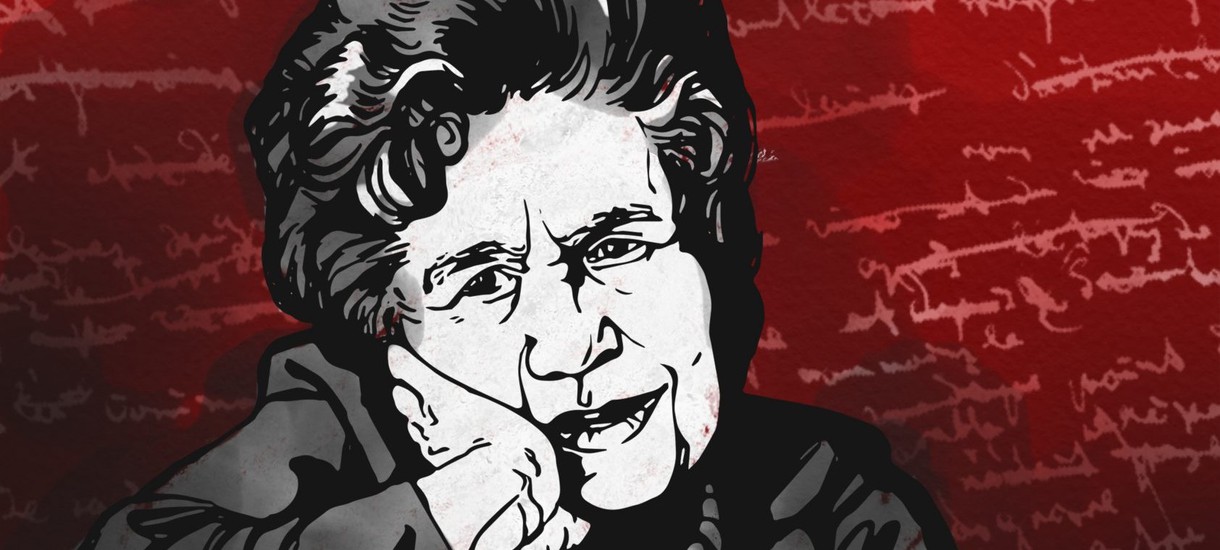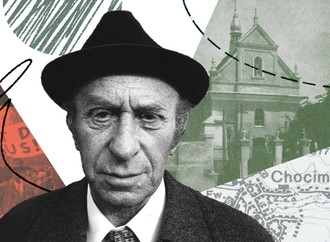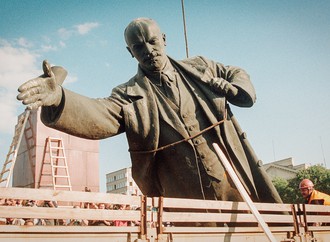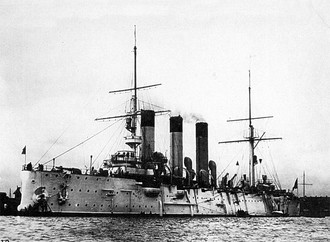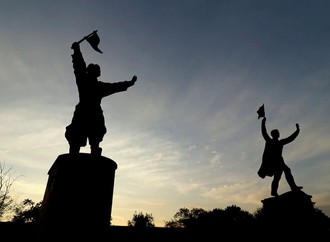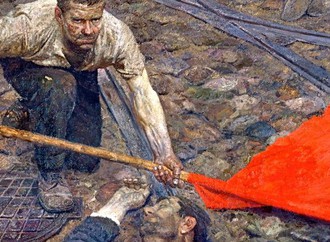The overblown expectations of many pundits in the 1990s that the collapse of the “communist” regimes heralded a “neoliberal era” defined by unincumbered free markets, continuous economic growth, and expansive political liberty has clearly proven hollow. The economic, racial, and gendered inequities that have historically characterized capitalism has only become exacerbated in recent decades, as the impact of the Covid-19 pandemic strikingly shows. No less hollow is the claim that political liberty will be fostered as the “free” market extends its reach worldwide, as seen in the growth of rightwing authoritarianism worldwide—including in the United States, the supposed “heartland” of liberal democracy. Meanwhile, the relentless drive of environmental destruction on the part of state powers large and small continues unabated, placing in jeopardy the very existence of civilization as we know it. Given all this, it is no surprise that efforts to envision an alternative to capitalism is resurfacing today.

At the same time, it is increasingly clear that there is no going back to the past — to conceptions of socialism that are defined by single party states, hierarchical economic planning, and the suppression of individual freedoms. While a viable alternative to capitalism remains largely out of sight, we at least have the advantage today of knowing that the models of socialism and communism that prevailed in the twentieth century are no longer adequate.
So, how and where to begin anew? It is impossible to chart a path to an unknown future without building from the insights of those who came before us. For this reason, it is best to begin by re-examining what Ernst Bloch called the “warm current” in Marxism—those who sought to sustain Marx’s liberatory vision against both “free market” capitalism and statist “socialism.” An especially important figure in this tradition is Raya Dunayevskaya (1910–1987), founder the philosophy of Marxist-Humanism in the U.S. Although she is often overlooked in histories of Marxism, interest in her life and work has grown in recent years as a new generation of thinkers and activists struggle to comes to terms with our present predicament[1].
Genesis
Raya Dunayevskaya was born in the Podolian Governorate of Ukraine on May 1, 1910 to an impoverished Jewish family. Her earliest memories were of the Russian Revolution of 1917 (in which her elder sister participated) and the Civil War. As she later recounted, her parents hid the children when counter-revolutionary White Armies came through the area out of fear they could be raped, but did not do so when the Red Army arrived. When she asked why, her parents said “Bolsheviks wouldn’t rape Jews.” However anecdotal, such experiences leave a lasting imprint on a young child, and they surely impacted her early embrace of Marxism.
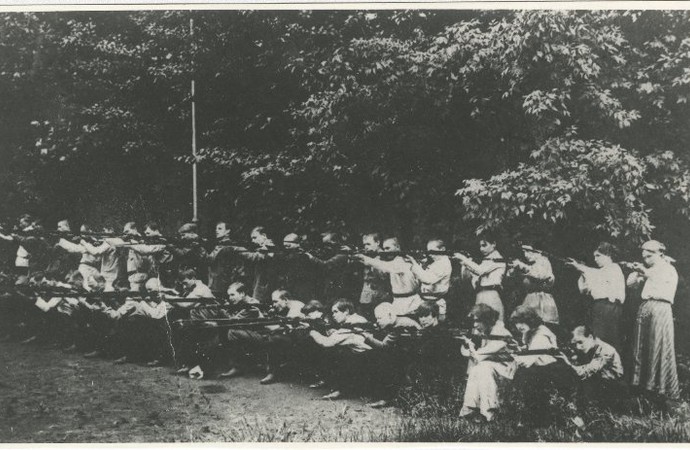
By 1921 her family fled the violence of the Civil War, emigrating to Romania and then the U.S., arriving in Chicago in 1922. Soon afterwards she joined the Young Pioneers, a youth group of the recently-formed Workers (Communist) Party USA. Her first publication, at the age of 13, was a re-write of the American Pledge of Allegiance in its publication, The Young Comrade, which stated, “I pledge allegiance to the Workers’ Red flag/And to the cause for which it stands/One aim throughout our life/Freedom for the Working class (Dunayevskaya 1923, 8470). A few years later, in 1925, she became active in the American Negro Labor Congress — the first effort of U.S. communists to create a presence in the Black community. Throughout her life, she was deeply invested in struggles against racism.
Her life took a turn in 1927, when she was expelled from the Young Pioneers for objecting to a motion in support of the USSR’s condemnation of Leon Trotsky. She knew nothing of his views at the time; she just asked that they learn about them before taking a vote. Soon after, she moved to New York City to connect with other dissident communists expelled for similar reasons[2]. Dunayevskaya spent the next ten years involved in the labor movement as a Trotskyist militant, working with such figures as James P. Cannon, Martin Abern, and A.J. Muste. In 1937, seeking a reprieve from the factional struggles consuming the U.S. Left, she became Russian language secretary to Leon Trotsky during his exile in Coyoacán, Mexico[3]. For the next two years she worked closely with Trotsky in refuting Stalin’s slanders, supporting the work of the Left Opposition inside the USSR, and working to build a new, Fourth International.
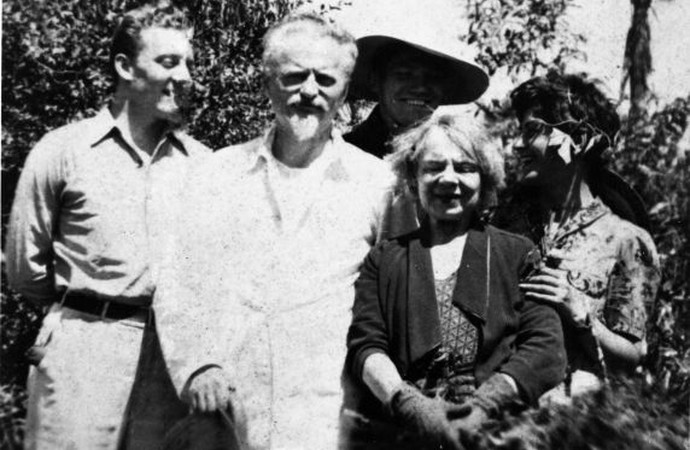
The Theory of State-Capitalism
Although known as a devoted militant, there was little indication as of the late 1930s that Dunayevskaya would become a theoretician. She had no formal education beyond high school and learned theory through her involvement in the revolutionary movement. Her birth as a theoretician occurred in response to debates within the Trotskyist movement concerning the nature of the USSR. It centered on whether Stalinism represented a political counter-revolution or an entirely new form of class society. Trotsky insisted on the former, calling for the critical defense of the USSR on the grounds that it had annulled capitalism through the abolition of private ownership of the means of production. He held to this even in the face of the Hitler-Stalin Pact of 1939, which gave the green light to World War II. This Dunayevskaya could not accept: she broke from Trotsky and set out to analyze the class nature of Stalinism.
The result was a series of detailed economic analyses of the USSR, in which she held that socialists had been led astray by presuming that abolishing private ownership of the means of production suffices to annul capitalism. She wrote in 1940, “The determining factor in analyzing the class nature of a society is not whether the means of production are the private property of the capitalist class or are state-owned, but whether the means of production are capital, that is, whether they are monopolized and alienated from the direct producers. The Soviet Government occupies in relation to the whole economic system the position which a capitalist occupies in relation to a single enterprise” (Dunayevskaya, 1940). The USSR, she held, was neither “socialist” nor a transitional society between capitalism and socialism, but rather state-capitalist.
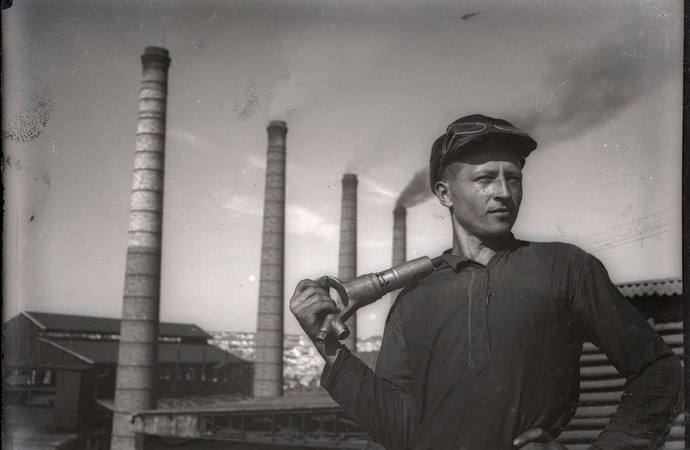
Dunayevskaya was surely not the first to call Stalin’s Russia state-capitalist. Karl Kautsky, Anton Pannekoek, and Friedrich Pollock all preceded her in this. But state-capitalism in their hands was a purely political designate: they made no effort to analyze the Soviet economy in terms of whether or not it conforms to the capitalist law of value. Dunayevskaya was the first to do so in a series of rigorous analyses of the first Five Year Plans.
In 1941 she joined forces with C.L.R. James, a Black revolutionary Marxist from Trinidad (then living in the U.S.), to form the Johnson-Forest Tendency (its name derived their respective pseudonyms) within the U.S. Workers’ Party. The JFT sought to rethink the meaning of Marxism in light of the emergence of state-capitalism as a new global stage — manifested not only in the USSR but in Roosevelt’s New Deal in the U.S. and Hitler’s Four-Year Plans in Germany. In doing so, they sought to come to grips with what led many opponents of capitalism to support regimes (whether Social Democratic or Stalinist) that nationalized property and/or abolished the “free market” without freeing the masses from the despotic plan of capital.
Dunayevskaya and James held that the problem stemmed, in part, from confusing property forms with production relations. The problem was not new; decades earlier, in Reform of Revolution, Rosa Luxemburg had taken issue with reformist socialists who argued that replacing private with public property constitutes “socialism” (Luxemburg 1898). But it was raised to a higher level with Stalinism, which proclaimed in the name of revolution that the total nationalization of property in the USSR marked “the irrevocable creation” of a socialist society. Dunayevskaya countered, “When Marx analyzed the process of capitalist production, he probed deeper than its legal outer covering. That is why he concluded that it was not the ownership but function of capital that produced surplus value… It is immaterial to the laborer, whether the capitalist pockets the whole profit, or whether he has to pay over a part of it to some other person, who has a legal claim to it” — such as the state (1942, 28).
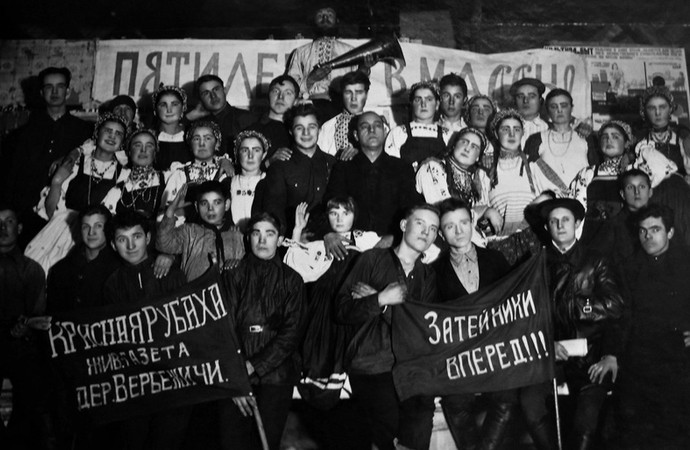
In the course of her study of the Soviet economy, she discovered Marx’s Economic and Philosophic Manuscripts of 1844, which were then virtually unknown in the English-speaking world. She was the first to translate and publish parts of it in English[4]. Marx’s 1844 critique of what he called “crude and unthinking communism” seemed to speak directly to the present moment. He wrote, “The relationship of the worker to labor creates the relation to it of the capitalist (or whatever one chooses to call the master of labor). Private property is thus the product, the result, the necessary consequence, of alienated labor, of the external relation of the workers to nature and to himself. Although private property appears to be the reason, the cause of alienated labor, it is rather its consequence” (Marx 1975, 279).
Marx of course opposed private ownership of the means of production. But he did so not to privilege the collective over the individual, but as a first step in creating a new society based on a free association of the producers. Workers cannot control their activity of laboring so long as an alien class owns the means of production. The critique of capitalism begins by opposing its property forms, but proceeds to take issue with the human relations at the point of production that makes them possible. If the latter is put aside, the domination of capital over labor persists. For this reason, Marx called the “crude communist” fixation on property forms a first, “abstract” negation, which merely leads to a different variant of capitalism: “The community is only a community of labor, and equality of wages paid out by communal capital — by the community as the universal capitalist” (Marx 1975, 295). This notion that eliminating the capitalist while leaving alienated labor untouched leads to society becoming “the universal capitalist” is a remarkable anticipation of twentieth century Social Democracy and Stalinism.
A crucial philosophical point is involved here: focusing on property involves targeting a thing, whereas focusing on conditions of labor involves targeting relations between people that take on the form of things. Marx wrote, “when one speaks of private property, one thinks of dealing with something external to man. When one speaks of labor, one is directly dealing with man himself. This new formulation of the question already contains its solution” (Marx 1975, 281). The fixation on property, which defined not just established Marxists but such independent ones such as Trotsky, falls short of Marx’s advocacy of “a thoroughgoing Naturalism or Humanism” that represents “the unity of idealism and materialism” (Marx 1975, 296, 336).
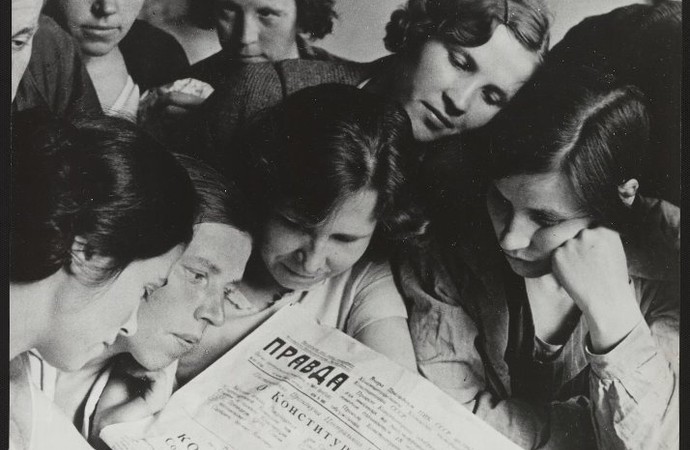
At the time other dissident Marxists (such as Bruno Rizzi, Max Schachtman, and Hal Draper) argued that the USSR was a unique formation unforeseen by Marx since it was neither capitalist (due to its abolition of private property) nor socialist (since its working class was subjected to brutal exploitation). Dunayevskaya countered that their theory of “bureaucratic collectivism” failed to break from the vulgar Marxist premise that property forms determine production relations instead of vice versa[5]. As she later wrote, in Marxism and Freedom.
As Marx put it in his earlier writings, so long as there exist “power over individuals,” “private property must exist.” To Marx, private property is the power to dispose of the labor of others. That is why he so adamantly insisted that to make “society’ the owner, but to leave the alienated labor alone, is to create “an abstract capitalist” … Marx insisted that the abolition of private property means a new way of life, a new social order only if “freely associated individuals,” and not abstract “society” become master of the socialized means of production (Dunayevskaya 2000 [orig. 1958], 61-2).
The consequences of this became clear in 1944, when Stalin announced a dramatic change in the teaching of political economy: Whereas it had been agreed by virtually all Marxists up to then that the law of value defines capitalist society, Stalin now declared that it operates in the “socialist” USSR. Dunayevskaya translated the document containing this startling reversal with a commentary in The American Economic Review in 1944, sparking an intense debate with such figures as Oskar Lange[6] and Paul Baran (see Dunayevskaya 1944).

Since the USSR had not ended commodity exchange, cost accounting, labor markets, and other aspects of capitalism, Stalin felt the need to square theory with reality by declaring that the law of value operates in it — albeit “in the interests of the masses.” But if that is so, how can it claim to avoid the crises endemic to value production? To be sure, it could try to shield itself from the pressures of the world market by spurring domestic capital accumulation through the genocidal exploitation of the Ukrainian peasantry, but how could that provide a viable model of economic development in the long term? Dunayevskaya argued,
Capitalism can never really plan because its law of motion is impelled by reproduction according to socially necessary labor time set by the world market, and thus even if all conditions are met as to planning in factory, external planning as to market, and labor paid at value, the incessant revolutions in production of necessity mean the “development of productive forces of labor at the expense of the already created productive forces” (1949, 9247).
While it appeared that economic planning from above — and hence statist control of society — was total in Stalin’s Russia, this was actually not the case. The law of value signifies that it is never the actual amount of labor time expended in producing a commodity that establishes its value; instead, its value is determined by the average amount of time that is socially necessary to produce it on the world market. Since this average constantly shifts with technological innovations that alter the productivity of labor, no plan from above — not even a totalitarian one — can succeed in overcoming the constant imbalances and disequilibrium associated with value production. Totalitarian systems replace conflicts between competitive firms in the “free market” by shifting them to a higher level — to conflicts within the state bureaucracy (hence Stalin’s constant purges and the endless feuds between the Gaue in Hitler’s Germany).
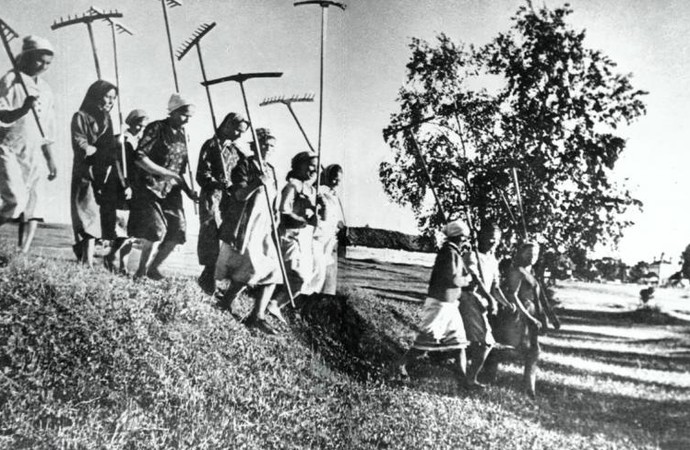
Moreover, since the USSR retained universalized commodity production, it encountered the same barrier as any “normal” capitalist society: an inability to stifle the resistance of the human subject. In capitalism (as Marx stressed) labor is not a commodity — it is an activity. The commodity is labor power — the capacity to labor. Human relations in capitalism take on the form of things, but they are not themselves things — if they were, capital accumulation would be impossible, since living labor is the only source of value. Dunayevskaya therefore held that revolts within the Soviet Union were inevitable. Unlike many others at the time — from Hannah Arendt to George Orwell — who claimed that “totalitarianism” had rendered internal resistance fruitless, she argued that revolts were bound to break out within the Soviet union. As indeed they did, beginning with the East German and Vorkuta Uprising of 1953. In an analysis written shortly after Stalin’s death, she called it “the beginning of the end of Russian totalitarianism.”
The Philosophy of Marxist-Humanism
The theory of state-capitalism extended beyond a critique of “Soviet-type” societies, since it helped lead to the re-discovery of the humanist dimension of Marx’s critique of capital that become lost sight of in post-Marx Marxism. To be sure, the theory of state-capitalism largely consisted of a negative critique of existing social formations; but by the mid-1950s Dunayevskaya drew from it the need to go further, by reconstituting Marxism as a philosophy of liberation centered on the transformation of human relation inside and outside the workplace.
The first book-length study of Marx’s Humanism was Marxism and Freedom, from 1776 Until Today, first published in 1958. It contained the stirring declaration, “Marxism is a philosophy of liberation or it is nothing” (1958, 22). Marx’s Humanism, she held, did not derive from the classless humanism of the Renaissance, but rather from the proletarian struggles of his day, which took issue with the transformation of human relations into relations between things. As she put it, “Until the development of the totalitarian state the philosophic foundation of Marxism was not fully understood. Only today is it possible to comprehend that Marx’s rejection of the Communism of his day was not a nineteenth century humanitarian adjunct to his scientific economic theories” (1958, 21-22).
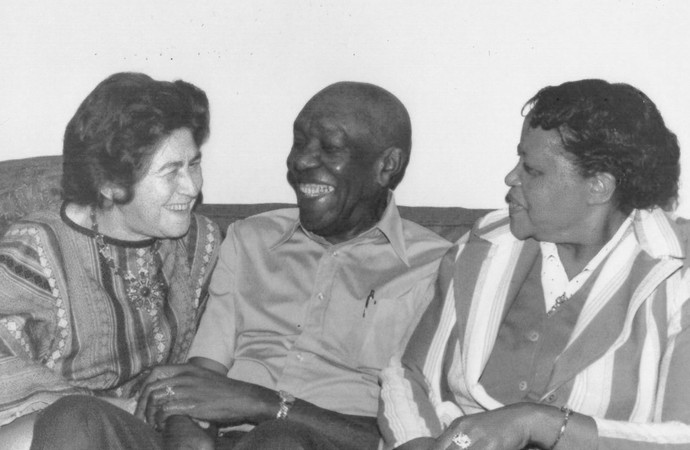
Although a number of leftwing theoreticians in Europe, the Americas, Africa and Asia came to embrace a socialist humanist perspective over the ensuing decades, two aspects distinguish Dunayevskaya’s advocacy of a humanist Marxism from many others.
First, she did not base humanism on an essentialist view of human nature or philosophical anthropology, but rather on the content of new social movements. The struggles of rank-and-file workers against automated production was crucial in this. Instead of viewing them as an impediment to progress or a failure to understand that the replacement of living labor by capital provides the material basis for socialism — the position of Herbert Marcuse, which whom she carried on a lengthy correspondence[7] — she held that they raise the fundamental human question of “what kind of labor should people perform”? Rank-and-file wildcat strikes against automation (which extended from the 1949–1950 Miners’ General Strike to the walkouts in the U.S. auto industry in the 1960s and 1970s), were not focused on getting better wages and benefits; they most of all took issue with the dehumanized nature of the labor process in which workers become appendages of a machine. In doing so, they were taking issue not just with the unequal distribution of value but the very basis of value production — the drive to produce more in less time through the domination of dead labor over living labor.
Dunayevskaya’s humanist perspective also owed much to the freedom struggles of Black Americans. While U.S. socialists and communists tended to support anti-racist movements to some degree, most viewed them in terms of demands for civil rights that are achievable within capitalism. The task of overcoming capitalism itself was seen as reserved for the working class alone. In contrast, Dunayevskaya held that anti-racist struggles often go further than demands for political or economic equality by opposing conditions in which people of color are treated as objects instead of subjects. Reification is not restricted to the labor process; it defines the color line as well. Which is why struggles against racism often call into question the dehumanized relations that characterize capitalism. Since class relations in American society have been shaped by racial considerations since their inception, they could only be adequately confronted through the lens of race. Marx hinted at this in Capital in writing, “labor in a white skin cannot emancipate itself where it is branded in a black skin” (1976, 414).
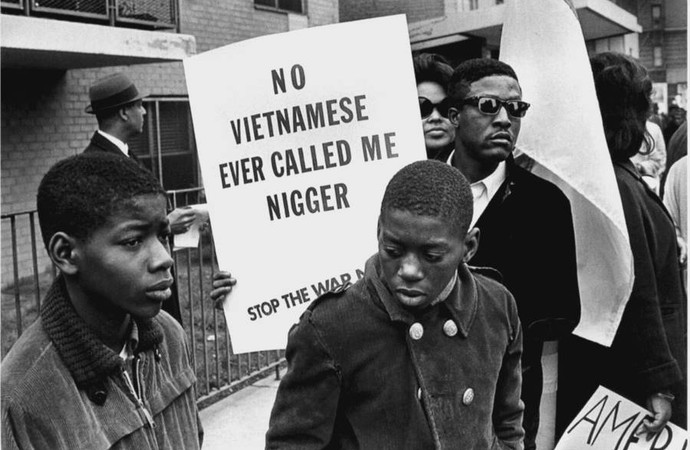
No less significant was her response to the modern women’s liberation movement. The “Second wave” feminism of the 1960s and 70s was not only a response to the sexism in bourgeois society; it emerged from within the Left in opposition to the male chauvinism that characterized much of it as well. As Dunayevskaya put it, “The women were demanding: ‘Don’t tell me to wait until after the revolution; to many revolutions have soured. I want new relations right here, right now, right in my organization’” (1974, 185). The treatment as women was viewed as the measure of whether or not leftist theory and practice is actually committed to uprooting oppressive relations. Dunayevskaya noted that this resonates with Marx’s 1844 critique of “crude communism,” in which he stated that its fixation on private verses collective property “finds expression in the brutish form of opposing to marriage (certainly a form of exclusive private property) the community of women, in which a woman becomes a piece of communal and common property” (1975, 294). Marx concluded that we can “judge humanity’s whole of development” by its treatment of women (1975, 296). It took the emergence of the modern women’s liberation movement for these words of Marx — which indicates he was not a class reductionist — to begin to be noticed and appreciated.
In sum, it was the demands of new social movements, not some abstract classless “humanism,” that is the basis of Marxist-Humanism. She called them “a movement from practice that is itself a form of theory.” Mass struggles, she held, are not simply a force to be harnessed in the name of “making” the revolution. They raise theoretical questions that need to be heard, absorbed, and developed — such as “When does my working day begin and end and why have I no control over it?”, “Why am I seen not as a person but in terms of a racial stereotype,” “Why does the person who claims to love me still treat me as an object”? Since the rise of state-capitalism had shown the insufficiency of leaving aside the critique of alienated human relations, the new movements that arose in response to it tended to focus on the need to uproot them.
A second aspect of Dunayevskaya’s socialist humanism that distinguishes herself from others in this tradition is that whereas most tended to focus on Marx’s early writings, she held that his humanism is most profoundly exhibited in the three volumes of Capital.
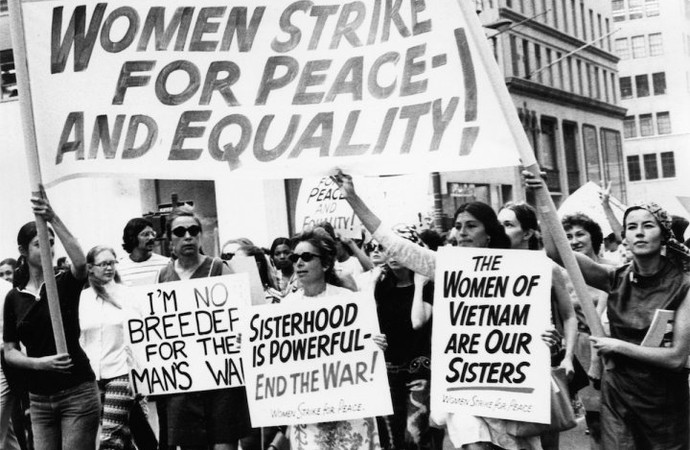
It is often presumed that Marxism is a radical variant of Ricardo’s labor theory of value, insofar as Marx drew from it that surplus value should be redistributed from capitalists to workers. But this is misleading. Marx takes issue not just with the unequal distribution of value but with the very existence of value (wealth expressed in money). A commodity’s value, Marx stresses, is not determined by the actual number of hours taken to produce, but by the average amount of time necessary to do so. This abstract average, socially necessary labor time, imposes it will on the producers regardless of their needs or desires. “Value” is the expression of a peculiar form of labor in which individuals are subjected to an abstract time-determination that is outside of their control. Socialism represents the abolition of value production through the creation of new human relations in which individuals freely organize their time instead of it being organized for them by the market or the state. The whole point of Marx’s Capital is to pinpoint and uproot the fetishized form of human praxis that defines capitalism. As Dunayevskaya put it, “Marx’s primary theory is a theory of what he called ‘alienated labor’ and then ‘abstract’ or ‘value-producing’ labor…Hence it is more correct to call the Marxist theory of capital not a labor theory of value, but a value theory of labor (1958, 138).
In recent years, a number of Marxist value-form theorists (the German Neue Marx-Lektüre, the school of systematic dialectics, Moishe Postone, etc.) has challenged traditional Marxism’s emphasis on property forms and exchange relations on the grounds that it neglects the dominance of abstract labor and socially necessary labor time. However, they become so fixated on such abstract forms of domination that they conclude that the logic of capital effaces workers’ resistance or even subjective human agency as a whole. The humanist implications of Marx’s critique of value production gets passed over.
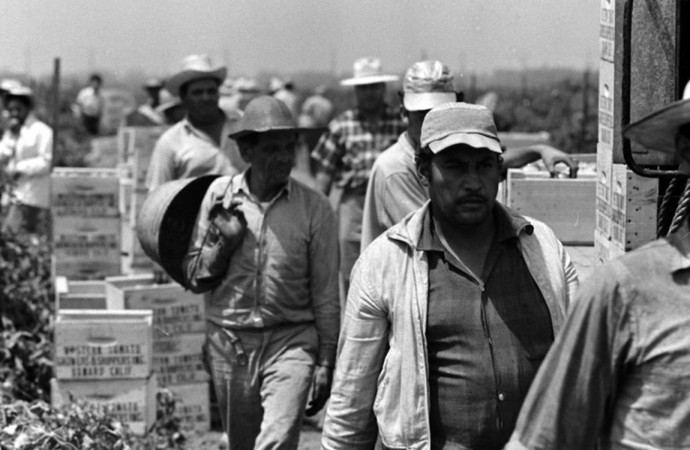
Perhaps the most famous challenge to the humanist interpretation of Marx’s critique of political economy is by Louis Althusser. He takes Marx’s statement, “individuals are dealt with here only in so far as they are personifications of economic categories” (Marx 1976, 92) as meaning that he dispensed with humanism by the time of Capital. This shows he does not understand that Capital is an immanent critique of capitalism. Capital presents individuals as personifications of economic categories because that is how they are actually treated in a system defined by the domination of dead labor over living labor. Capital (to use Hegelian terms) is adequate to its concept; it presents human relations in their reified, objectified form because that is integral to the logic of capital, which treats people as if they are machines. Marx begins not with “man,” but with the commodity-form, because the latter involves the dehumanization of “man.” If Marx did not present individuals as “bearers” of economic categories it would not have been impossible for him to convey the utter perversity and inhumanity of capitalism. In a word, Althusser confuses the object of Marx’s critique with its normative endorsement.
Althusser’s notion of the “epistemological break” between the young and “mature” Marx has surely not stood the test of time[8]. He initially located the break with 1845; when the publication of the 1858 Grundrisse made Marx’s continued debt to Hegel all too clear, he post-dated it to the first edition of Capital (1867); and when Marx’s statement from 1875 became known — viz., “My relationship with Hegel is very clear; I am a disciple of Hegel [despite] the chattering of the presumptuous chattering of the epigones who think they have buried this great thinker” (Marx 1963, 528)—he moved the goal-posts once again, to 1881! So why do some continue to be attracted to Althusser, despite the erroneousness of so many of his claims?

The main reason, I believe, is the desire for a counter to the crude materialism and economic reductionism that largely defined the Marxism of the Second International, which was adopted and carried to an extreme by Soviet “Diamat” — which viewed all phenomena (including the cultural and spiritual ones) as “nothing but” a reflection of “forces of production.” While Althusser’s notion of the autonomy of the superstructure appeared to offer an alternative to such reductionism, it comes at a hefty price. If history is a “process without a subject,” as he claimed, it can only mean that history — and our existence — corresponds to a machine[9]. And if that is so, there is no possibility of escaping or negating it — except, perhaps, through the arbitrary exercise of an indeterminant will. It is surely no accident that the Althusser became a follower of Mao, whose voluntarism and disregard of objective conditions was summed up in his slogan, “Make One Day Equal Twenty Years!” The Maoist notion that “consciousness” — namely, adherence to Mao Thought — could surmount any obstacle proved to be a path not to liberation but a recipe for disaster. Indeterminant voluntarism provides no more effective strategy for social transformation than economic reductionism. They are opposite sides of the same coin. As Dunayevskaya argued in Philosophy and Revolution, from Hegel to Sartre and from Marx to Mao, Mao’s “version of the intuitionist and voluntarist alternative to dialectics has laid [China] down a retrogressionist path of the primitive accumulation of capital” (Dunayevskaya 1973, 162).
Philosophy, Revolution, and Organization
Perhaps the most distinctive aspect of Dunayevskaya’s Marxist-Humanism is her view of Hegel. She began writing on Hegel in the early 1950s under the influence of Lenin’s 1914–1915 “Abstract of Hegel’s Science of Logic,” which she was the first to translate into English. That Lenin devoted six months in the midst of World War I to studying Hegel was shocking enough. But even more so was his statement that the chapter on the “Absolute Idea” in the Logic is the “least idealist” and “most materialist.” This ran counter to the traditional Marxist view that accepts Hegel’s method while dismissing the culmination of his system in a series of absolutes. Partly guided by Lenin’s reading, Dunayevskaya questioned this separation of method and system because it reduces “dialectics” to a variant of instrumental reason — in contrast to Hegel’s insistence that dialectics is a method at one with the content of its subject matter.
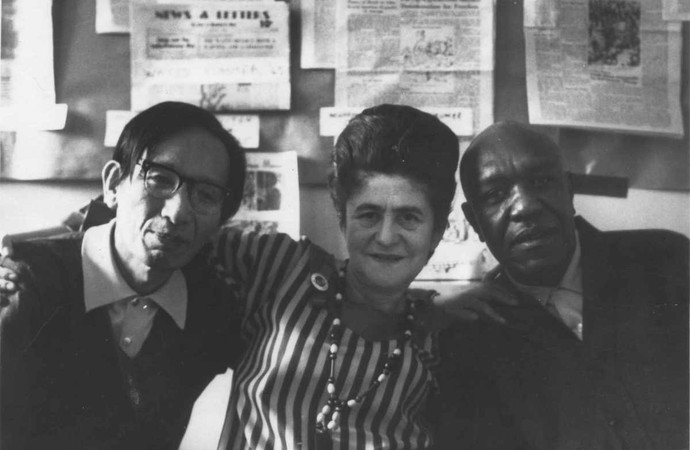
So, what is the subject matter of Hegel’s philosophy? Freedom! To be sure, Hegel has been accused of glorifying the Prussian state — although contemporary Hegel scholarship undermines such claims. The “absolute” in Hegel involves mutual recognition between individuals and the state, but by the state he means not an oppressive hierarchy but institutions in which the freedom of each is assured through the freedom of all. An idea of “freedom” that lacks concrete embodiment in actual institutions is formalist and empty. “Absolute knowing” is the knowledge that we (and not some outside force) are the authors of our norms and practices, insofar as social relations realize such principles. In this sense, Hegel’s absolute serves as a measure of the extent to which social formations embody freedom[10].
There is of course is a big difference between Marx and Hegel: whereas the Subject that overcomes alienation in Hegel’s “Absolute Knowledge” is disembodied thought, for Marx (as Dunayevskaya put it in Rosa Luxemburg, Women’s Liberation, and Marx’s Philosophy of Revolution) the subject is “the human being, the masses…not apart from the actual history of class struggles” (1981, 143). Marx’s rejection of Hegel’s dehumanization of the Idea suggests that the “absolute” — the transcendence of alienation — is not an unreachable beyond, but is imminent in actual freedom struggles. This is the meaning of Marx’s Eleventh Thesis on Feuerbach — not that we forgo the effort to think philosophically, but that we change the world in such a to realize philosophy in overcoming the alienation that defines modern existence.
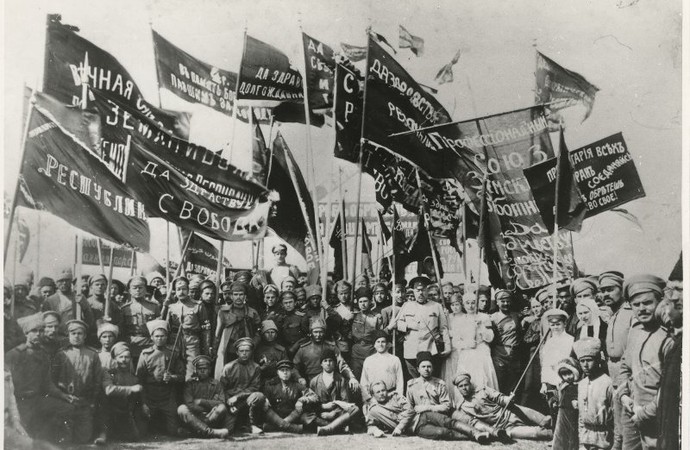
Getting to such a post-capitalist future cannot be achieved without listening to the forces of revolt. And in our era, such forces are not limited to the proletariat, but also comprise women, national minorities, and youth. But while movements from practice often raise important theoretical questions, we cannot rely on spontaneous revolt alone to get us to a new society. Dunayevskaya sharply criticized the hierarchical models of organization associated with Lenin and Leninism throughout her career on the grounds that they leave unanswered the question of how to avoid the formation of a new bureaucracy or ruling class upon the seizure of power. But neither did she endorse the view that revolutionary parties or organizations are not needed. Every time a spontaneous movement breaks out, activists form groups to advance their struggle; but very often they go further, by seeking out organizations of revolutionary theoreticians that can help clarify the nature of capitalism and how to overcome it. Unfortunately, more often than not such parties or organizations seek to take over the movements rather than providing them with the philosophical-political guidance they are looking for. But that does not undermine, but only reinforces, the need for groups of revolutionary Marxists that define their role as developing a philosophy of liberation that can give action its direction.
As one recent commentator on her work put it, “Whereas in 1955 C.L.R. James called for the abolition of the distinction between party and mass, the author of Marxism and Freedom does not seem to have ever truly renounced the necessity of forming a revolutionary organization relatively autonomous from social movements” (Monferrand 2021, 281). For her, groups of Marxist thinker-activists remain crucial — not to take over and control movements, but to raise awareness in active dialog with them of what constitutes a viable alternative to capitalism.
Conclusion
Dunayevskaya summed up the perspective posed by the development of Marxist-Humanism in 1981: “The myriad crises in our age have shown, over and over again, from Russia to China, from Cuba to Iran, from Africa to Pol Pot’s Cambodia, that without a philosophy of revolution activism spends itself in mere anti-imperialism and anti-capitalism, without ever revealing what it is for… What is needed is a new unifying principle, on Marx’s ground of humanism, that truly alters both human thought and human experience” (Dunayevskaya 1981, 194).
In the forty years since these words were written, many important social movements have arisen, but we have not witnessed a single revolutionary seizure of power in the name of socialism[11]. The reasons for this are complex, but we must be open to the possibility that masses of people will not be drawn to a radical alternative that is not thoroughly democratic and humanist. If Marxists cannot show that their theory and practice avoids the problematic standpoints associated with the failed efforts at social transformation over the past 100 years, it is hard to see how a needed revolutionary new beginning can actually occur.
No one theoretician or school of thought provides the answer for how to resolve this, but Dunayevskaya’s body of thought surely deserves a hearing in light of it. As Ludwig Wittgenstein once said, “in philosophy, the winner of the race is the one who can run most slowly. Or: the one who gets there last” (1984, 34). While recognition of her contributions has been somewhat belated, Marxist-Humanism may well turn out to be an idea whose time has come.
Footnotes
- ^ See Anderson, Durkin, and Brown (2021)
- ^ One of them was Antoinette Konikow, a Russian revolutionary who became active in Plekhanov’s Emancipation of Labor Group in 1891; after moving to the U.S., she helped found the U.S. Socialist Party (in 1901), the Communist Party (in 1919), and the first Trotskyist group in the U.S., the Independent Communist League (in 1928). She was a pioneering advocate of birth control and women’s rights. For more on this remarkable figure, see Feeley 1972.
- ^ Dunayevskaya originally wanted to enlist in one of the international brigades that fought in the Spanish Civil War, but they would not accept women.
- ^ Her translation appeared as the appendix to the first edition of her Marxism and Freedom: from 1776 Until Today (1958). It took close to a decade for Dunayevskaya to convince a U.S. publisher to issue them.
- ^ It should be noted that the claim that the USSR was not state-capitalist, since it relied on slave and not “free” labor, makes it extremely difficult to integrate the critique of racism into a Marxist critique of capital. Black slaves in the U.S. were surely not “free,” but their labor power was of pivotal importance in accumulating capital since it was exerted on behalf of the capitalist world market. Capitalist wage labor is “free” only in the formal sense of being freed from an organic connection to the conditions of production. Black slaves transported from Africa to the Americas were clearly torn from any organic connection to their conditions of production. The racism that was arose from it and persists to this day is endemic to the logic of capital.
- ^ Lange traveled to Moscow in 1944, shortly after responding to Dunayevskaya’s critique of the revision of the law of value, to discuss the implications of the debate with Stalin.
- ^ For their decades-long correspondence, ee Dunayevskaya (2012)
- ^ See Althusser (1970, 221-31) for his approach to this issue.
- ^ Heidegger (who deeply influenced Althusser) anticipated this standpoint in posing reification as humanity’s inescapable ontological condition. As Jean Vioulac put it, “Existence today consists, not only as seeing beings appear as nothing but machines, but also in their possibilities circumscribed by machinability. Existence itself is exposure to the power of machination” (Vioulac 2021, 17).
- ^ For more on this, see Dunayevskaya (2002).
- ^ Though Venezuela under Chavez sought to navigate a path to socialism, it was engineered largely from above (he announced his conversion to socialism after several years of being in power), and despite making important reforms, he presided over an extractivist state-capitalism that appears to have now run its course.
